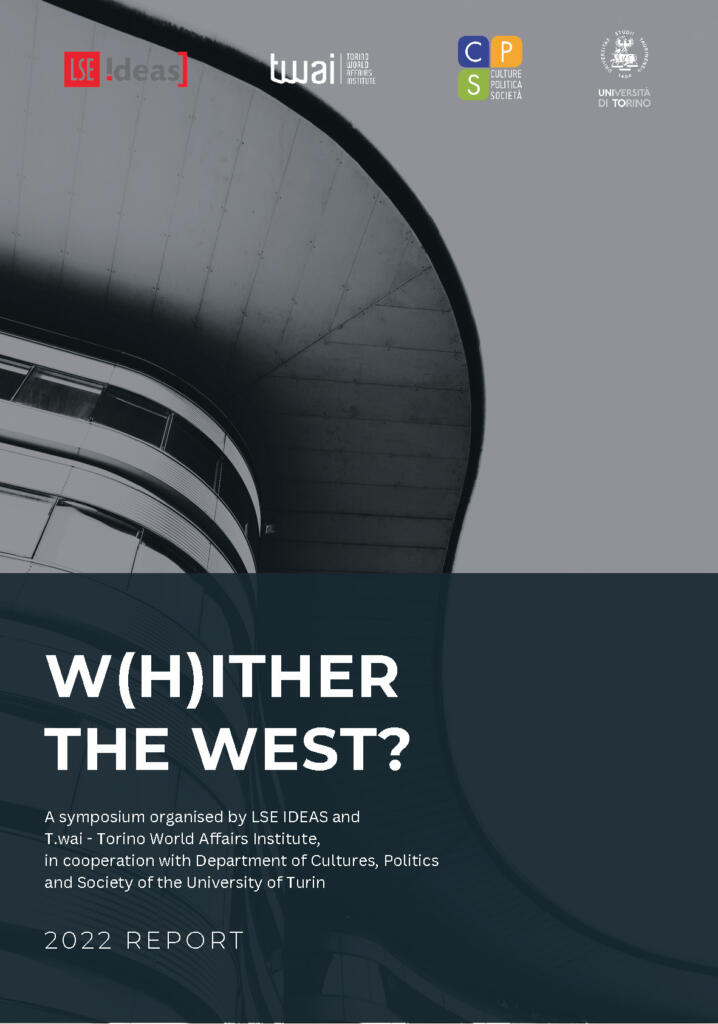
In his opening words, Stefano Ruzza unpacked the symposium title in two guiding questions: what is the West, and what is its future? According to Ruzza, when the idea of the symposium originally came about (in 2019), the stability of Western success appeared to be dwindling as the US and Europe appeared to be drifting away from each other, the European Union was losing one of its key members via Brexit, and the liberal international order was challenged by the increasingly assertive stance of China and Russia, as well as the rise of populism and nationalism in several Western countries.
Ruzza observed that more recently the overall feeling seems to have shifted, as the West appears to have kept its grip in the face of major international crises. The COVID-19 pandemic has been putting pressure on the entire world, and it has certainly taken its toll on the West, yet the West has arguably managed to perform better than its competitors. All the same, the West’s reaction and response to the war in Ukraine have been more coherent than many observers would have expected, and have so far contributed to the revitalization of two of the pivotal institutions of the Western bloc, namely NATO and the European Union.
Yet, while the West may no longer appear to be in decay as it did in 2019, its destiny is still intertwined with longer-term tendencies that recent events may have changed or simply brought more explicitly to the fore.
Download

Corso Valdocco 2, 10122 Torino, Italy
Sede legale: Galleria S. Federico 16, 10121 Torino
Copyright © 2025. Torino World Affairs Institute All rights reserved
